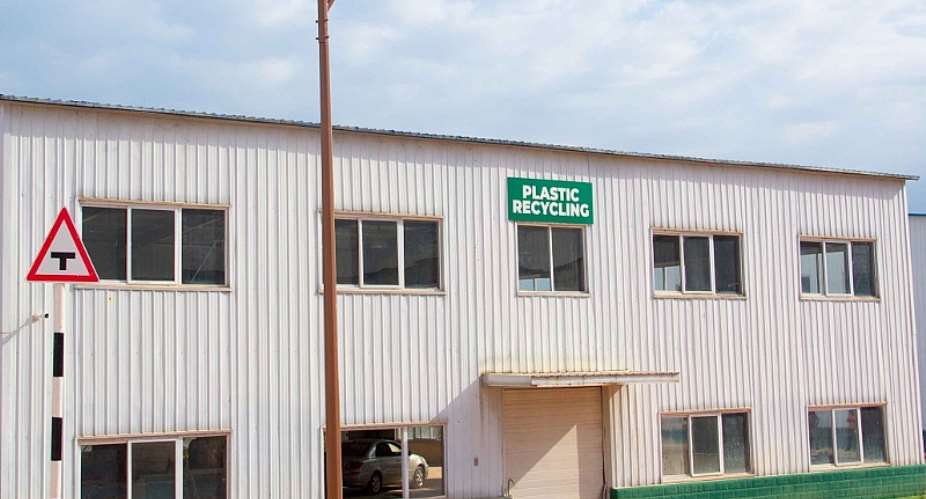Kumasi is the second-largest city in Ghana and the capital of the Ashanti Region. It is located about 250 km northwest of the capital, Accra. According to the Ghana Statistical Service, the city has an estimated population of 3,348,000 and a population growth rate of approximately 5.4% per annum. Kumasi has about 40 low-income areas, constituting approximately 50% of the population. In low-income areas, almost 94% of households have access to an improved sanitary situation.
The Waste Management Department of KMA manages a faecal sludge treatment facility at Dompoase, a suburb of Kumasi, which shares premises with a landfill site. The treatment facility consists of waste stabilization ponds (six anaerobic ponds, one facultative pond, and two maturation ponds), though only two ponds are currently operational. The waste stabilization pond has been designed to treat 600m3 of septage daily and receives faecal sludge from the 32 active vacuum trucks, or approximately 500m3 daily. In addition, the wastewater treatment plant (in Asafo, a suburb of Kumasi) has a capacity of 1,124 m3/day but is not used to full capacity. The Kwame Nkrumah University of Science and Technology has its own wastewater treatment plant.
However, these landfill sites are inadequate to solve the sanitation issues in the Kumasi metropolis and its adjoining communities. Kumasi generates an average of 1,500 tons of solid waste daily out of which 1,400 is collected with the rest finding its way into drains, gutters and open places. A ton of waste is equivalent to 16 bags of a full brown cocoa sack. This implies that 100 tons of uncollected waste which is equivalent to 1,600 of cocoa sacks of waste finds itself in drains and open places. This exposes the city to floods and other illness that are associated with improper sanitation situations.
Last week, flooding caused damage to homes and infrastructure in several areas of the city including Kaase, Ahensan and Atonsu. One person, believed to be a young boy, died after being swept away by flood waters in the Asokwa neighborhood of the city. Local disaster officials appealed to residents to stop dumping refuse in waterways and drains in order to curb the further occurrence of such disasters. At least 12 children died in similar flooding incidents in Ashanti Region last year . Many of the children drowned while making their way to or from school during periods of heavy rain. At the time, disaster officials said a better understanding of the dangers of floods is required. City authorities have attributed the recent floods to the choked drains in the metropolis. Many of the drains in the city are homes to all manner of waste, blocking the flow of water.
It was therefore welcoming for me as a resident in Kumasi when the government of Ghana and private company, Zoomlion joined forces in a Public Private Partnership to build an Integrated Composting and Recycling Plant at Adagya in the Bosomtwe district in the Ashanti Region. I read the $95-million plant has a capacity to convert 2,400 tons of waste material into by-products daily. This makes the plant one of the biggest in Africa. This means the plant if manages well that take waste from other close towns, regions and recycle into by-products.
The recycling plant is situated on a 150-acre land in the Bosomtwe district and will treat solid and plastic waste from the Kumasi metropolis and adjoining districts into reusable materials and organic products. The facility also has the capacity to produce 3,000 bags of organic fertilizer daily to support farming in the country. This will gives farmers in the district and surrounding districts access to cheap fertilizer and boost their production.
The commissioning of the compost and recycling plant will not only process solid waste into plastic, fertilizer and other reusable product but it will also reduce the volumes of waste on our streets, in our drains, and thereby reducing illness like diarrhea and folding that perennially lead to the death of people. Going forward, government should do more with such partnership with the private sector. It saves the lives of many and create employment for many.
Writer : Eugene Osei-Tutu





 Court dismisses Serwaa Amihere case against Henry Fitz, two others
Court dismisses Serwaa Amihere case against Henry Fitz, two others
 Stolen BRVs: Bi-partisan parliamentary probe non-negotiable — Dr. Omane Boamah
Stolen BRVs: Bi-partisan parliamentary probe non-negotiable — Dr. Omane Boamah
 Bawumia begins regional campaign tour on Monday
Bawumia begins regional campaign tour on Monday
 With great urgency backed by verifiable data, facts and figures dismiss COCOBOD,...
With great urgency backed by verifiable data, facts and figures dismiss COCOBOD,...
 EC’s statement on obsolete BVDs discovery “lies, half-truths, pure fantasies” – ...
EC’s statement on obsolete BVDs discovery “lies, half-truths, pure fantasies” – ...
 Nalerigu court impound vehicles of DCE, Director of Chereponi district for owing...
Nalerigu court impound vehicles of DCE, Director of Chereponi district for owing...
 Cop, 7 others grabbed over $523,000 Gold Scam
Cop, 7 others grabbed over $523,000 Gold Scam
 Akufo-Addo’s driver wins Dadekotopon NPP Parliamentary Primary
Akufo-Addo’s driver wins Dadekotopon NPP Parliamentary Primary
 Investigate, jail persons liable for GRA-SML contract – Manasseh
Investigate, jail persons liable for GRA-SML contract – Manasseh
 Lawyer wins Akan NPP Parliamentary Candidate primary
Lawyer wins Akan NPP Parliamentary Candidate primary
